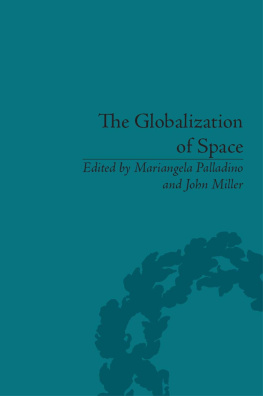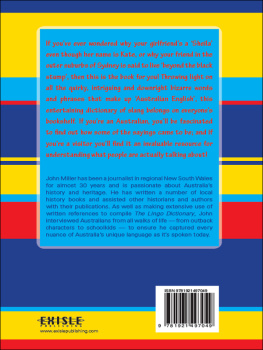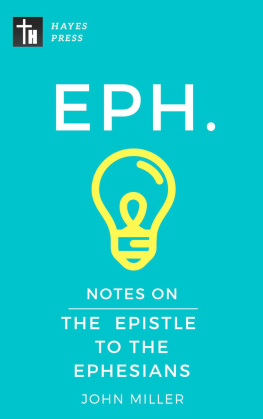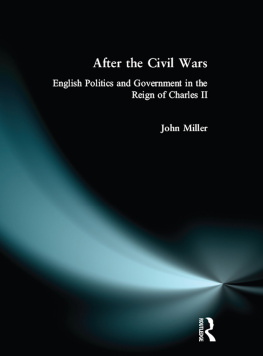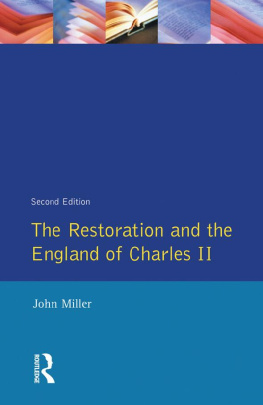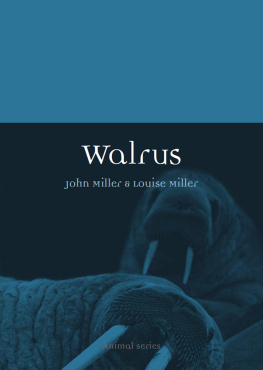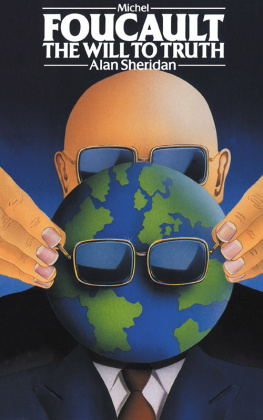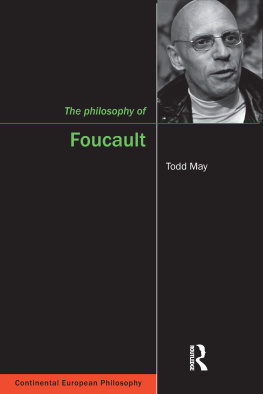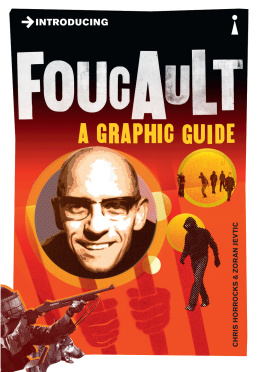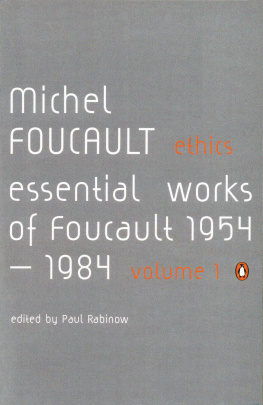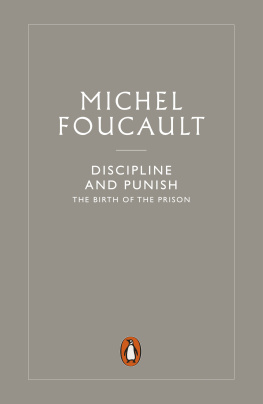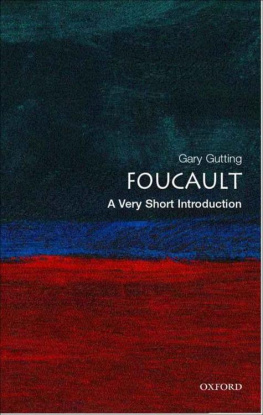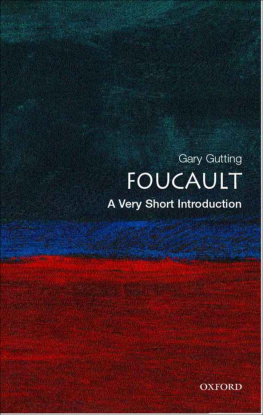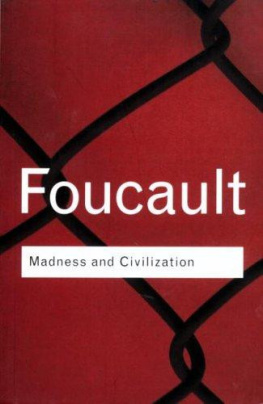
THE GLOBALIZATION OF SPACE: FOUCAULT AND HETEROTOPIA
THE GLOBALIZATION OF SPACE: FOUCAULT AND HETEROTOPIA
EDITED BY
Mariangela Palladino and John Miller

First published 2015 by Pickering & Chatto (Publishers) Limited
Published 2016 by Routledge
2 Park Square, Milton Park, Abingdon, Oxon OX14 4RN
711 Third Avenue, New York, NY 10017, USA
Routledge is an imprint of the Taylor & Francis Group, an informa business
Taylor & Francis 2015
Mariangela Palladino and John Miller 2015
To the best of the Publishers knowledge every effort has been made to contact relevant copyright holders and to clear any relevant copyright issues. Any omissions that come to their attention will be remedied in future editions.
All rights reserved, including those of translation into foreign languages. No part of this book may be reprinted or reproduced or utilised in any form or by any electronic, mechanical, or other means, now known or hereafter invented, including photocopying and recording, or in any information storage or retrieval system, without permission in writing from the publishers.
Notice:
Product or corporate names may be trademarks or registered trademarks, and are used only for identification and explanation without intent to infringe.
BRITISH LIBRARY CATALOGUING IN PUBLICATION DATA
The globalization of space: Foucault and heterotopia.
1. Foucault, Michel, 19261984. 2. Space Social aspects. 3. Environmental psychology.
I. Palladino, Mariangela, editor. II. Miller, John, editor.
304.23-dc23
ISBN-13: 978-1-84893-462-7 (hbk)
Typeset by Pickering & Chatto (Publishers) Limited
CONTENTS
Mariangela Palladino and John Miller
Mauro Pala
Tom Bristow
Zo Wicomb
Mariangela Palladino
Stella Bolaki
Abdulrazak Gurnah
Iain Chambers
Diane Morgan
John Miller
Fabienne Collignon
Sincere gratitude is due to Roger Palmer, whose work was vital to the projects development.
Stella Bolaki is Lecturer in American Literature at the University of Kent. She works primarily in multi-ethnic American writing, Disability Studies and Medical Humanities. She is the author of S. Bolaki, Unsettling the Bildungsroman: Reading Contemporary Ethnic American Womens Fiction (Amsterdam: Rodopi, 2011) and is currently completing a new monograph titled Illness as Many Narratives.
Tom Bristow completed BA (Hons), MA (Hons) at the University of Leicester, and a PhD at the University of Edinburgh. Tom is a post-doctoral research fellow at the Australian Research Council Centre of Excellence for the History of Emotions, University of Melbourne; he is interested in British literature, ecocriticism, geocriticism, and the ecological humanities.
Iain Chambers teaches at the University of Naples, LOrientale, and is known for his interdisciplinary and intercultural work on music, popular and metropolitan cultures. His books include: I. Chambers, Migrancy, Culture, Identity (London: Routledge, 1994); I. Chambers, Culture After Humanism: History, Culture, Subjectivity (London: Routledge, 2001); and I. Chambers, Mediterranean Crossings: The Politics of an Interrupted Modernity (Durham, NC: Duke University Press, 2008).
Fabienne Collignon is interested in American techno-culture and machine aesthetics. She is the author of F. Collignon, Rocket States: Atomic Weaponry and the Cultural Imagination (New York: Bloomsbury, 2014) and has published articles in Textual Practice, CTheory, European Journal of American Studies and Configurations.
Abdulrazak Gurnah is a writer, critic and scholar; he is the author of eight novels, the most recent is A. Gurnah, The Last Gift (New York: Bloomsbury, 2011). He is also Professor at the University of Kent (School of English). Among his publications, are: A. Gurnah (ed.), Essays on African Writing 2 vols (Oxford: Heinemann, 1995); and A. Gurnah (ed.), The Cambridge Companion to Salman Rushdie (Cambridge: Cambridge University Press, 2007).
John Miller is Lecturer in Nineteenth-Century Literature at the University of Sheffield. His first monograph, J. Miller, Empire and the Animal Body: Violence, Identity and Ecology in Victorian Adventure Fiction (London: Anthem Press, 2012), concerns depictions of exotic animals in Victorian adventure fiction. He also co-authored J. Miller and L. Miller, Walrus (London: Reaktion Books, 2014), as part of Reaktions Animal series. John has taught at the universities of Glasgow, Edinburgh and East Anglia.
Diane Morgan is Lecturer in the School of Fine Art, History of Art & Cultural Studies, University of Leeds. Her publications include: D. Morgan, Kant Trouble: The Obscurities of the Enlightened (New York: Routledge, 2000); D. Morgan and K. Ansell Pearson (eds), Nihilism Now!: Monsters of Energy (Basingstoke: Palgrave Macmillan, 2000); and D. Morgan and G. Banham (eds), Cosmopolitics and the Emergence of a Future (Basingstoke: Palgrave Macmillan, 2007).
Mauro Pala is a scholar in critical theory and cultural and postcolonial studies, and has held research posts at Witwatersrand University, Johannesburg and Notre Dame University, Indiana. Since 2000 he has been Senior Lecturer in Comparative Literature and Literary Theory at the University of Cagliari.
Mariangela Palladino is Lecturer in the English Department at the University of Keele. Her research interests lie at the intersection of postcolonial literatures and cultures, diaspora, migration studies, and narratology. Mariangela has worked at the universities of Strathclyde, Glasgow, Edinburgh and Coimbra. She has published in Modern Fiction Studies, The Journal of South African and American Studies, Interventions: Journal of Postcolonial Studies and the Journal of Postcolonial Writing.
Zo Wicomb is Emeritus Professor at the University of Strathclyde. She is the author of three novels: Z. Wicomb, Davids Story (New York: Feminist Press at the City University of New York, 2001), Z. Wicomb, Playing in the Light: A Novel (New York: New Press, 2006), and Z. Wicomb, October: A Novel (New York: New Press, 2014); two collections of short stories: Z. Wicomb, You Cant Get Lost in Cape Town (New York: Pantheon Books, 1987) and Z. Wicomb, The One that Got Away (New York: New Press, 2008); and numerous critical essays on South African writing and culture.
Mariangela Palladino John Miller
Engagements with Michel Foucaults conception of heterotopia have routinely involved something approaching a disclaimer. For Edward Soja, Foucaults accounts of heterotopia are frustratingly incomplete, inconsistent, incoherent. It is difficult at a glance to formalize what these spaces have in common, except a somewhat general sense of being set-apart from what might contrastingly be thought of as the normal or the everyday; a sense that a heterotopia is a different kind of space.
It is perhaps precisely the terms open-endedness that constitutes its allure. What Foucaults notion lacks in scholarly rigour it makes up for in suggestiveness. As James D. Faubian contends, Foucaults thoughts on heterotopia set aside the historians usual empirical reserve; there is an expansiveness
The ad hoc way in which Foucaults theory of heterotopia has arrived in critical discourse may also contribute to a sense of intellectual glamour that has come to surround it. Michiel Dehaene and Lieven De Cauter explain that heterotopia entered architectural and urban theory more as a rumour than as a codified concept. His first published usage of heterotopia appears in
Next page
